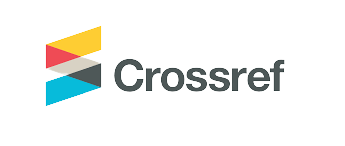Teaching Planning Models: A Critical Analysis of the Tyler, Taba, Dick & Carey Models, and Backward Design
Keywords:
Instructional planning, Tyler's model, Taba's model, Dick & Carey's model, Backward Design, learning effectiveness.Abstract
Instructional planning is an essential foundation for creating an effective, systematic, and goal-oriented learning process. This article presents a critical analysis of four influential instructional planning models: the Tyler Model, the Taba Model, the Dick & Carey Model, and the Backward Design Model. Each model has a different approach, both in terms of philosophy, stages, and planning focus. The Tyler Model emphasizes measurable learning objectives, the Taba Model is oriented towards learners' needs and interests, the Dick & Carey Model emphasizes a comprehensive instructional system, while the Backward Design Model focuses on determining learning outcomes before designing learning strategies. This analysis highlights the strengths and limitations of each model and recommends that the choice of planning model should consider the learning context, learner characteristics, and educational objectives. Thus, a flexible combination of various models can be a more adaptive and relevant strategy in addressing the challenges of modern learning.
References
Aisi, O. K., Susanto, R., & Isa, K. (2025). Bridging Gender Gaps In Education Through Islamic Values And Technology At Pptq Al-Hasan. Egalita : Jurnal Kesetaraan Dan Keadilan Gender, 20(1), 13–26. https://doi.org/https://doi.org/10.18860/egalita.v20i1.30589
Ambarwati, D., Wibowo, U. B., Arsyiadanti, H., & Susanti, S. (2022). Studi Literatur: Peran Inovasi Pendidikan pada Pembelajaran Berbasis Teknologi Digital. Jurnal Inovasi Teknologi Pendidikan, 8(2), 173–184. Retrieved from https://doi.org/10.21831/jitp.v8i2.43560
Anta, P., Sampurna, C., & Susanto, R. (2025). Implementation of STEAM in Pesantren Experimental Study Based on Local Wisdom Curriculum. JISEI: Journal of Islamic Studies and Educational Innovation, 01(02).
Ekawati, R. N. (2025). Education Secularism in Indonesia and Society ’ s Interpretation. JISEI: Journal of Islamic Studies and Educational Innovation, 01(01).
Fadhilah H.M, N., Rivai, A. T. O., & Syamsul, S. (2023). Development of Interactive Learning Media Based on Applications Articulate Storyline 3 Human Coordination System Material. JURNAL PAJAR (Pendidikan Dan Pengajaran), 7(3), 658. https://doi.org/10.33578/pjr.v7i3.9437
Firoza, R. N. W., Barlinty, S. A., & Mokhamad, K. Y. (2025). The Implementation of Akhlaq-Based Curriculum in Islamic Schools. JISEI: Journal of Islamic Studies and Educational Innovation, 01(01).
Huberman, A. M., & Jhonny, S. (2014). Qualitative Data Analysis a Methods Sourcebook. America: Arizona State University.
Junaidi, Sileuw, M., & Faisal. (2023). Integration of the Independent Curriculum in Islamic Religious Education (PAI) Learning. Indonesian Journal of Teaching and Teacher Education, 21(12), 40–47.
Kasus, S., & Cepu, M. (n.d.). Implementasi Manajemen Kurikulum Dalam Meningkatkan Mutu Pendidikan. 01(01). https://doi.org/http://dx.doi.org/10.21111/educan.v1i1.1288
Kurniawati, D., & Susanto, R. (2025). Analysis of the Minister of Education ’ s Curriculum Policy in the 2019-2024 Vs . 2024-2029 Era. QALAMUNA: Jurnal Pendidikan, Sosial, Dan Agama, 17(1), 741–754. https://doi.org/10.37680/qalamuna.v17i1.7127
Neuman, W. L. (2014). Social Research Methods: Qualitative and Quantitative Approaches (7th ed.). Boston: Pearson Education.
Noer Syo Im, & Achmad Muhibin Zuhri. (2024). Adaptation of Islamic Boarding School-Based Educational Institutions to the Capitalist Economy. Jurnal Budi Pekerti Agama Islam, 2(4), 264–276. https://doi.org/10.61132/jbpai.v2i4.473
Sahroni, Furqoni, H., & Martoyo. (2025). Comprehensive Review of the Book Ta ’ lim al-Muta ’ alim in the Context of Developing Teaching Materials for Creed and Morals in Madrasah Aliyah. JISEI: Journal of Islamic Studies and Educational Innovation, 01(01), 93–100.
Sampurna, P. C., & Jannah, P. N. (2025). Recontructing Islamic Pedagogy : A Critical Analysis of Traditional and Modern Teaching Approaches. JISEI: Journal of Islamic Studies and Educational Innovation, 01(01), 48–62.
Sugiyono. (2015). Metode Penelitian Pendidikan (Pendekatan Kuantitatif, Kualitatif, Dan R&D). Bandung: Alfabeta.
Sugiyono. (2016). Metode Penelitian : Kuantitatif, Kualitatif, dan R&D. Bandung: CV Alfabeta.
Susanto, R. (2024a). Konsep Pendidikan Karakter dalam Islam. In Pendidikan Karakter Berbasis Islam (pp. 20–32). U ME Publishing.
Susanto, R. (2024b). Penerapan Metode Musyafahah dalam Menjaga Autentisitas Qiraat Sab’ah (Studi Analisis di PPTQ al-Hasan Ponorogo dan PP al-Munawwir Krapyak) (IAIN Ponorogo). IAIN Ponorogo. Retrieved from http://etheses.iainponorogo.ac.id/id/eprint/29381
Susanto, R., & Syahrudin, S. (2024). Social Transformation Through Education: Building a Caring and Empowered Generation. Ngabari : Jurnal Studi Islam Dan Sosial, 17(2), 37–48.
Wahyudi, A., Nuriana, A. Q., & Irfan, M. (2025). Cultural Adaptation in Islamic Education : Navigating Between Tradition and Modernity. JISEI: Journal of Islamic Studies and Educational Innovation, 01(01), 101–114.
Downloads
Published
How to Cite
Issue
Section
License
Copyright (c) 2025 Journal of Islamic Studies and Educational Innovation

This work is licensed under a Creative Commons Attribution-ShareAlike 4.0 International License.







